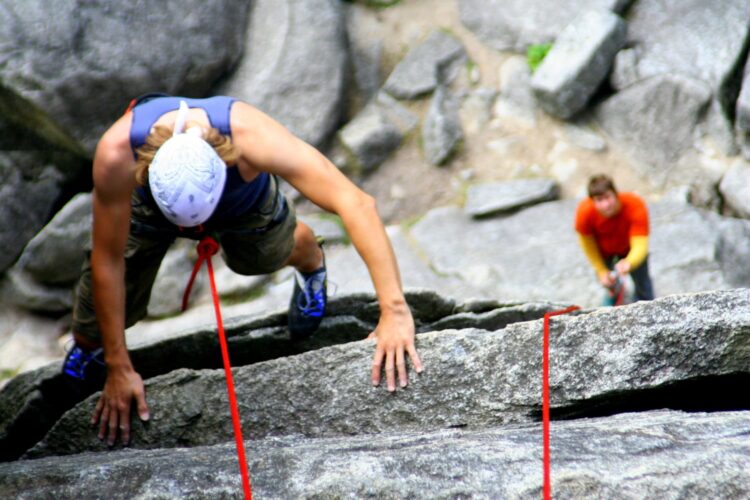Mental Health and Fitness Rock Climbing

The Connection Between Rock Climbing and Mental Health
Rock climbing is a sport that requires a lot of mental fortitude. Climbers must be able to stay calm and focused while navigating difficult routes, often high off the ground. This level of focus and concentration can help reduce anxiety and stress, as climbers learn to control their breathing and stay present in the moment.
In addition, rock climbing can also help boost self-confidence and self-esteem. As climbers push themselves to overcome challenges, they develop a sense of accomplishment that can lead to a more positive self-image. This can be especially beneficial for individuals who struggle with anxiety, depression, or other mental health issues.
Physical Benefits of Rock Climbing
Rock climbing is also an excellent way to improve physical fitness. Climbing requires a wide range of motion and engages muscles throughout the entire body, including the arms, legs, core, and back. This can help improve overall strength, flexibility, and balance.
In addition, rock climbing is a great cardiovascular workout. Climbing requires a lot of energy and can get the heart rate up, which can help improve endurance and stamina over time.
The Benefits of Climbing Outdoors
While indoor climbing gyms are a great way to train and improve skills, climbing outdoors can provide additional benefits for mental health and fitness. Outdoor climbing requires climbers to interact with nature, which has been shown to have a positive impact on mental health.
Research has shown that spending time in nature can help reduce stress, anxiety, and depression. In addition, outdoor climbing can provide a sense of adventure and excitement that can further boost mental health and well-being.
Steps to Get Started With Rock Climbing
Interested in trying rock climbing? Here are some steps to help you get started:
- Find a local climbing gym or outdoor climbing area.
- Take a beginner's class or hire a climbing instructor to learn the basics.
- Invest in proper climbing gear, including climbing shoes, a harness, and a helmet.
- Start with easy climbs and gradually work your way up to more challenging routes.
- Stay hydrated and take breaks as needed.
Advantages and Disadvantages of Rock Climbing
Like any sport, rock climbing has its advantages and disadvantages. Here are some to consider:
| Advantages | Disadvantages |
|---|---|
| Improves physical fitness | Can be dangerous if proper safety precautions are not taken |
| Boosts mental health and well-being | Can be an expensive sport to pursue |
| Provides a sense of accomplishment | Can be intimidating for beginners |
FAQs
Q: Is rock climbing a safe sport?
A: Rock climbing can be a safe sport if proper safety precautions are taken. This includes wearing the proper gear, using proper techniques, and climbing with a partner.
Q: Do I need to be in good physical shape to try rock climbing?
A: While rock climbing does require some physical fitness, beginners can start with easy climbs and work their way up to more challenging routes.
Q: Can rock climbing help with anxiety and depression?
A: Yes, rock climbing has been shown to have a positive impact on mental health, including reducing anxiety and depression.
Q: How do I get started with rock climbing?
A: Find a local climbing gym or outdoor climbing area, take a beginner's class or hire a climbing instructor, and invest in proper climbing gear.
In conclusion, rock climbing is a great way to improve both mental and physical health. With its focus on problem solving, concentration, and full body engagement, rock climbing can be an effective workout for both the mind and body. If you're interested in trying rock climbing, be sure to take the necessary safety precautions and start with easy climbs before working your way up to more challenging routes.
